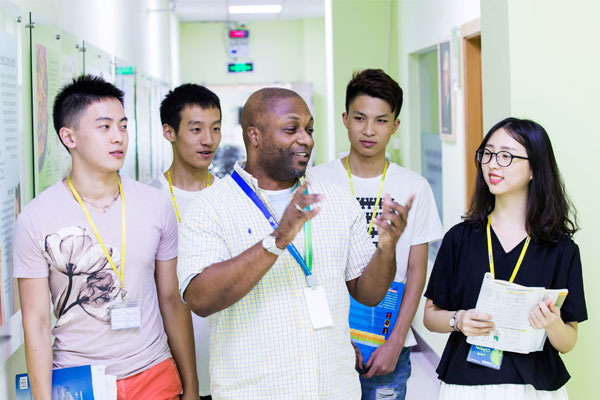Robots Branch Out Across Workforce
Industrial robots started replacing humans long ago in tedious and dangerous jobs, such as welding thousands of identical parts for vehicles. Today, more sophisticated robots are capable of precisely lifting and moving huge loads, such as railway engines, or sorting merchandise for rapid shipment from massive warehouses.
Skeptics say robots’ future as autonomous drivers might be a bit murky, but they can handle parallel parking like a pro. A robot valet named Geta can easily maneuver a car into a tight space that many drivers would bypass as too risky.
Marco Wu, head of Yeefung Automation Technology, the Chinese firm that developed Geta, says the robot can safely park a car in about two minutes.
"The robot can go everywhere without tracks, which is free and versatile and will reform parking in the future," he said.
Geta looks like a platform on wheels. Directed by a laser guidance system, it slides under a car, lifts it up and rolls it into an available parking space before lowering it and rolling away. Wu says that, besides saving maneuvering time, Geta needs up to 40 percent less space when it positions a car, which could be crucial — especially in big cities.
Another more human-like robot recently began working as receptionist at a hospital in Ostend, Belgium. Pepper, built by Zora Bots, can speak 19 languages and analyze voice tones and facial expressions. Its job is to greet patients, provide basic information and show them to appropriate rooms. With a full battery, the robot can work for up to 20 hours.
Standing just over a meter high, Pepper is not considered intimidating to children, and it rolls along at a slow pace that allows even elderly patients to keep up. Developers say Pepper's main job is to make people feel better in a hospital setting.
很久以前,工业机器人开始取代人类,在很多枯燥和危险的行业里工作;比如:焊接汽车和其它机械中成千上万相同的零件。更尖端和复杂的机器人能够精确地升降和移动巨大的负荷,例如:铁路上的机车。 或者分拣货品以便快速发运。
这些机器人的近亲现在可能开始在狭小的空间里泊车;因为许多开车人担心会损坏自己的或他人的汽车而避免泊车。
中国深圳的怡丰自动化公司说,他们生产的“Geta”机器人能够在两分钟内安全地完成停车。
怡丰自动化公司的马克·吴说:“我们做这个事情的目的就是为了要增加停车位,因为现在停车位是非常紧张的。”
马克•吴说,停车机器人在停车时除了节省时间之外,所需要的停车调转空间还减少了40%。这特别是在大城市可能是十分重要的。
另一个更像人类的机器人,最近开始在比利时奥斯坦德一家医院担任接待员的工作。这个由佐拉机器人公司生产、叫做“胡椒”的机器人有1.2 米高,能说 19 种语言,并且知道如何与儿童甚至婴儿打交道。充满电以后,“胡椒”可以工作长达 20 小时。
身为母亲的比克·凡德普特说: “它不会吓到孩子,这一点很重要的。尤其是对儿童”。 它可以分析语调和面部表情;研发商说,它的主要功能是让人在医院的环境里感到更加舒适。从这个小女孩的表情来看,“胡椒”似乎天生就适合这份工作。

